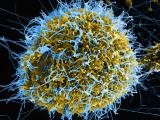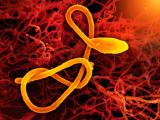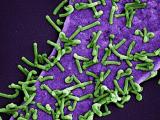The health ministry in Rwanda has reported a steady rise in Marburg virus cases over the past few days, and in quickly evolving developments, the country received a shipment of investigational Marburg vaccine and began immunizing healthcare workers.
In updates over the last 3 days, Rwanda’s health ministry announced the confirmation of 20 more cases and 1 more death, raising the outbreak total to 56 cases, which includes 12 people who have died from their infections.
Doses arrive from Sabin Vaccine Institute
Meanwhile, the country’s health ministry yesterday announced that it had received 700 Marburg vaccine doses the evening before, which would immediately be distributed to doctors and healthcare workers, a group hit hard by the outbreak. Earlier reports said the majority of the cases involved healthcare workers, especially those in two hospitals in Kigali, the country’s capital.
Health officials are now administering the vaccines though mobile clinics. At a media briefing, Rwanda’s health minister Sabin Nsanzimana, MD, PhD, said the vaccine has been used in other countries, including Uganda and Kenya. He also added that two drugs are being used to help Marburg patients in Rwanda, remdesivir and monoclonal antibodies.
The vaccine is from the Sabin Vaccine Institute, based in Washington, DC, which said in an October 5 statement that it had shipped an initial 700 doses of the investigational vaccine for a trial targeting frontline health workers.
It said the clinical trial agreement with the Rwanda Biomedical Centre applies to a rapid-response phase 2 open-label study targeting at-risk adults, beginning with health workers. The vaccines will be given at six clinical trial sites in Rwanda.
The group added that it will provide more doses, pending a request from Rwanda and authorization from the US Biomedical Advanced Research and Development Authority (BARDA), which is part of the Department of Health and Human Services. Currently, there are no approved treatments or vaccines for Marburg virus infection, which has a case-fatality rate as high as 88%.
The institute said its vaccine, made on a modified chimpanzee adenovirus (ChAd3) platform is given as a single dose. It added that phase 1 clinical trials and nonclinical studies suggest the vaccine is safe and prompts a rapid and robust immune response.
Unprecedented speed in vaccine rollout
Before vaccines were cleared for Ebola virus—a close relative of Marburg virus— clinical trials of vaccines in outbreak regions were difficult, because virus levels often declined before vaccine doses arrived, making it more difficult to gauge effectiveness.
Amy Finan, Sabin’s chief executive officer, said the group was able to ship the vaccine within 7 days of Rwanda’s government reaching out for assistance. “This swift emergency response demonstrates that a dedicated, collaborative group of individuals and organizations can achieve remarkable results when united by a common cause: to contain a lethal disease outbreak and prevent further loss of life.”
Craig Spencer, MD, MPH, an emergency medicine doctor who worked in West Africa during the region’s Ebola outbreak and is an Ebola survivor, on X yesterday said, “I can’t overemphasize how incredible it is that Rwanda went from announcing Marburg cases just over a week ago to getting frontline providers vaccinated today. The amount of work needed to make this happen is massive. Really, really impressive, all around.” Spencer is currently with Brown University’s School of Public Health.


















